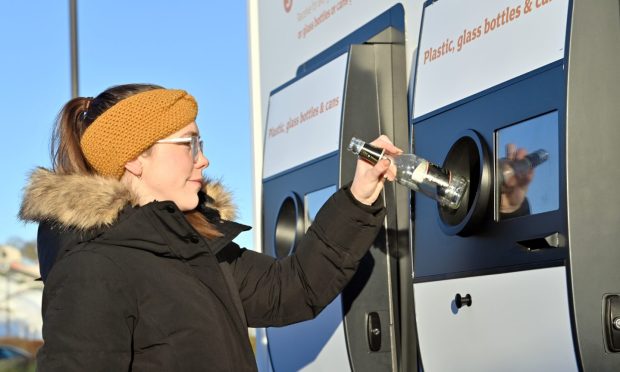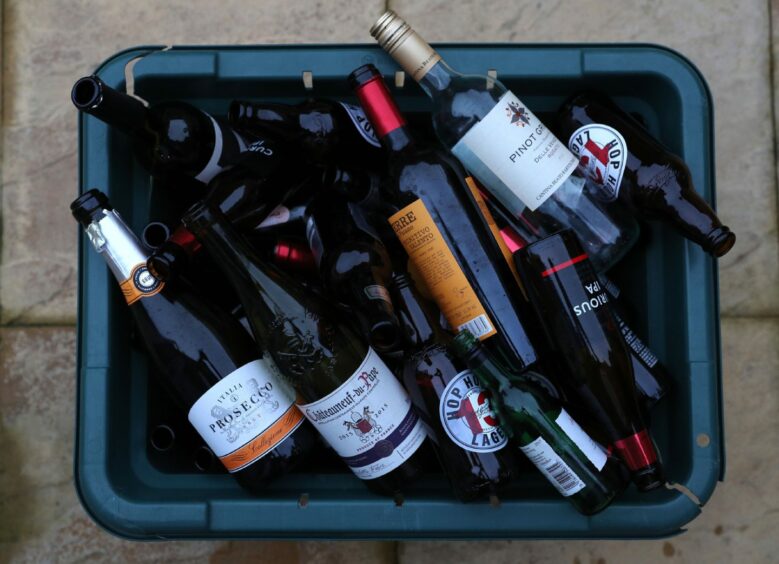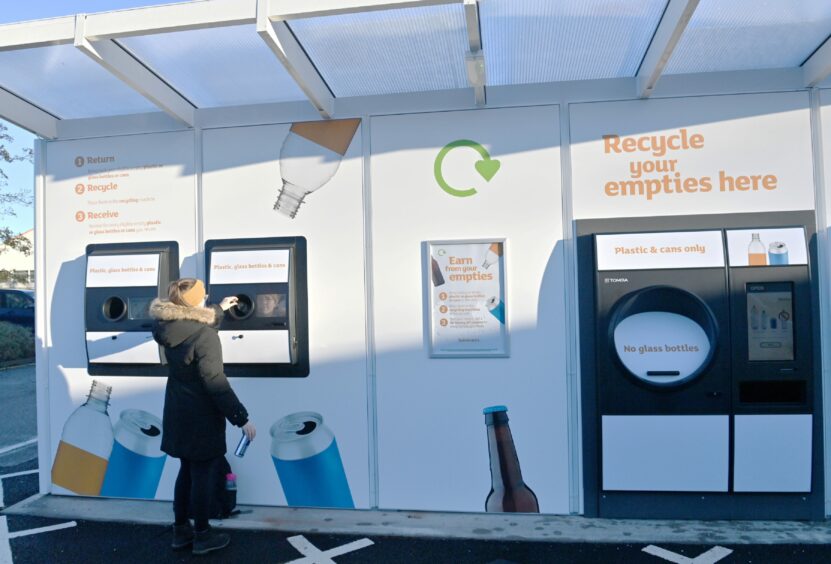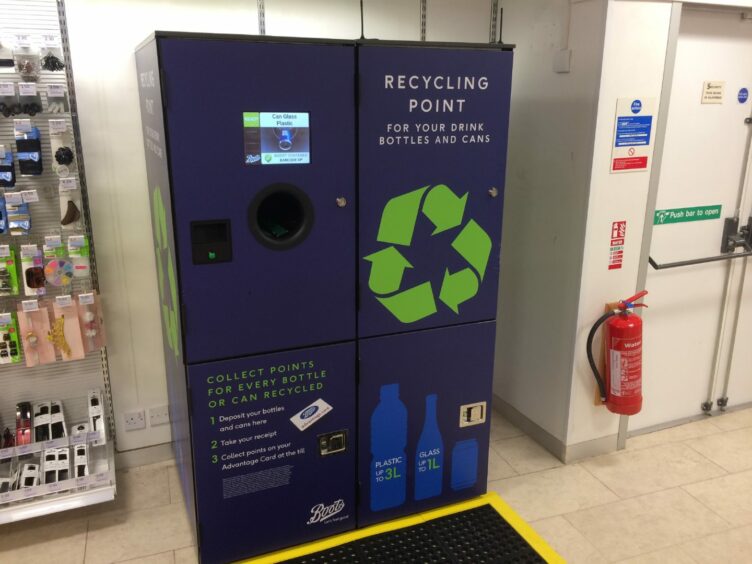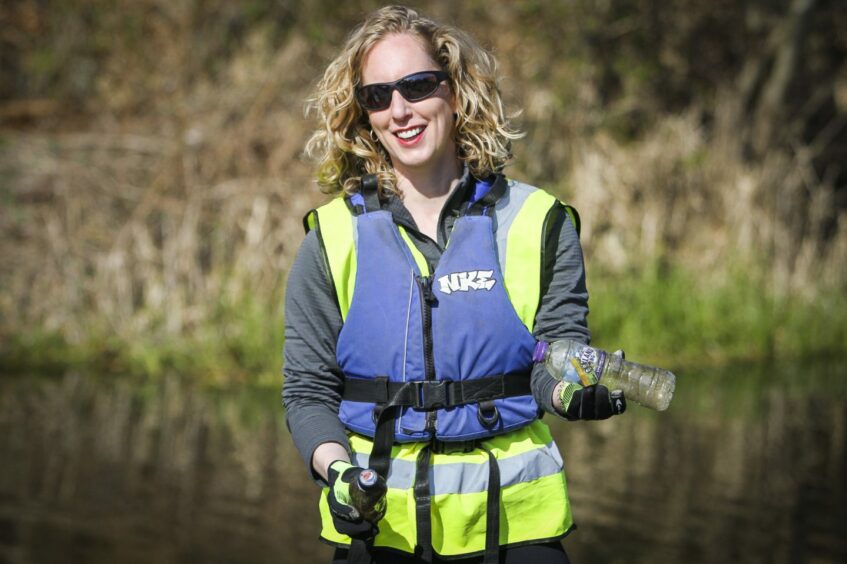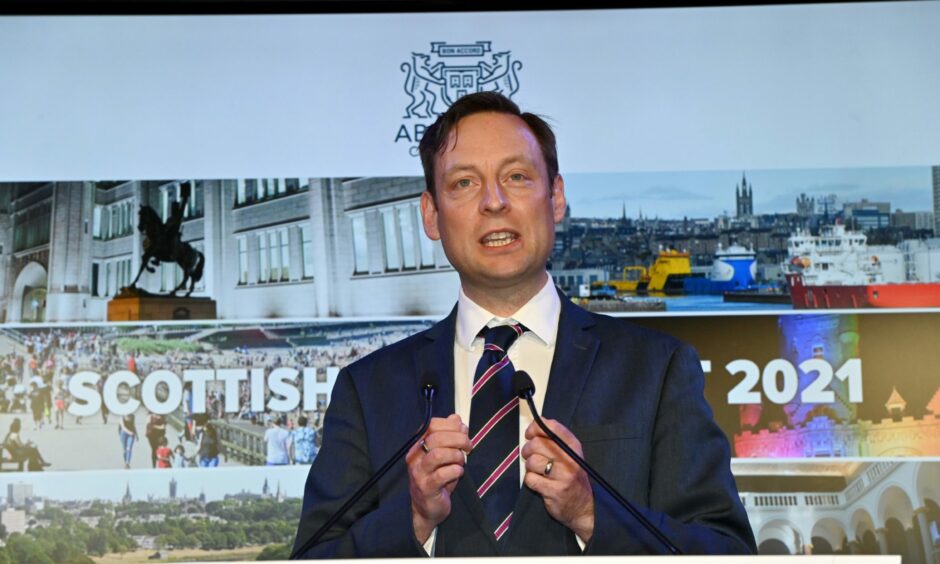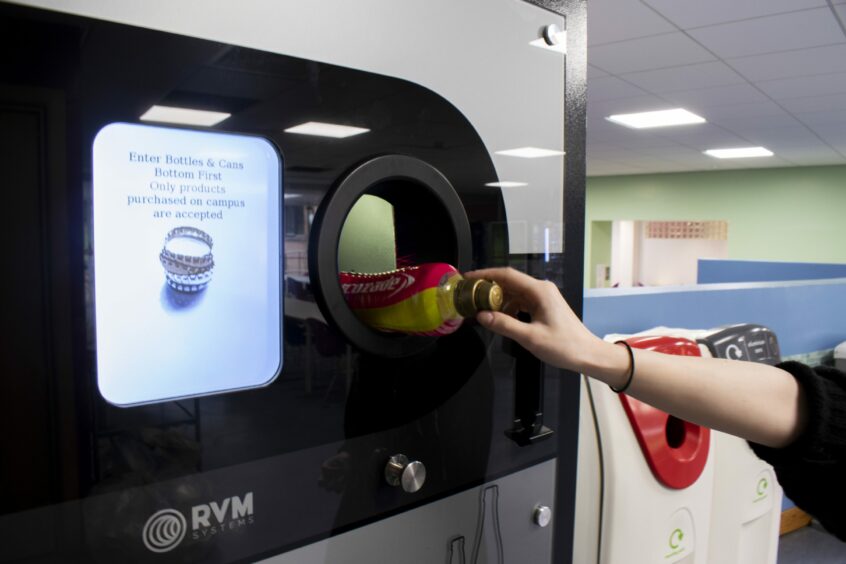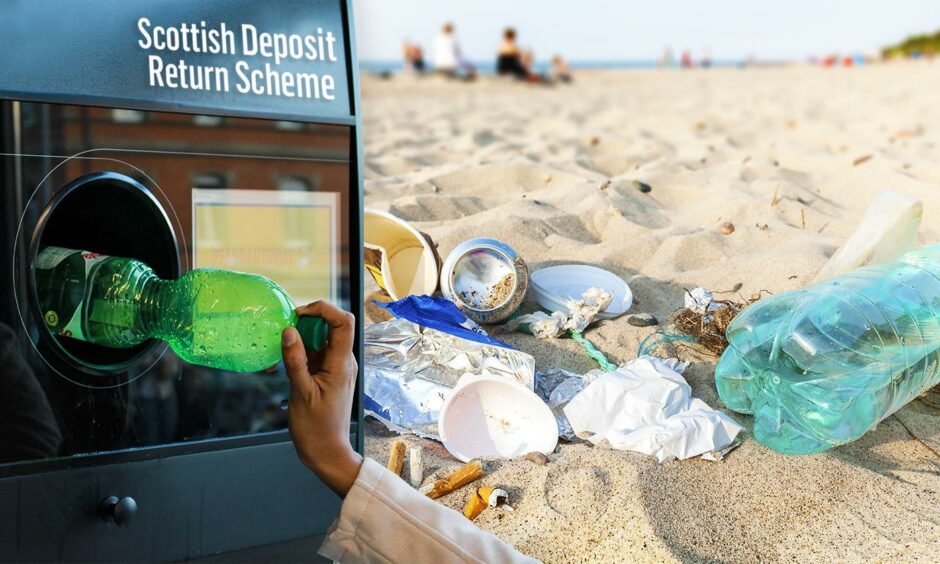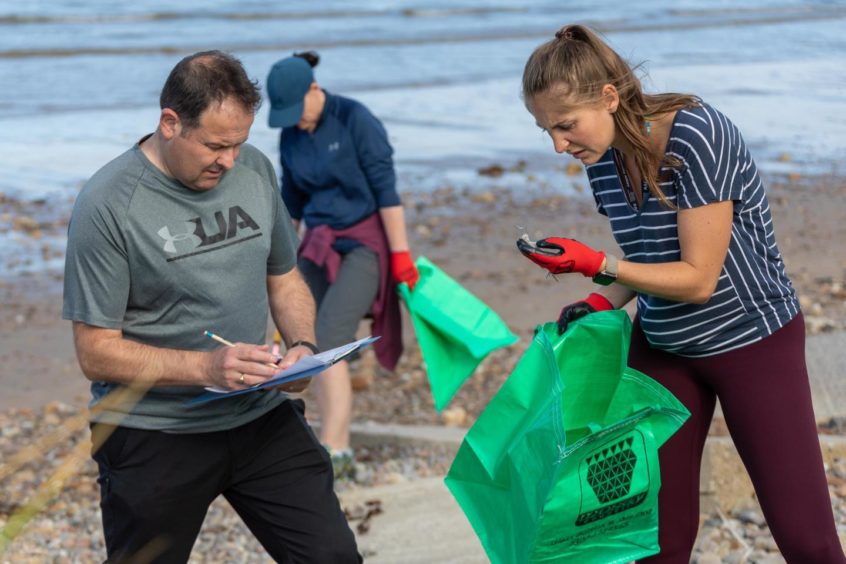Reverse vending machines for Scotland’s long-delayed bottle and can recycling scheme might not be built in Scotland, a Green minister has said.
Today, MSPs voted to officially delay the Deposit Return Scheme (DRS) to August 2023.
The initiative, which First Minister Nicola Sturgeon first confirmed would be coming to Scotland back in 2017, was originally going to start this July.
But after an independent review was carried out that blamed the pandemic and Brexit for causing delays, the government “concluded that the July 2022 implementation date was not achievable”.
Shoppers to face an extra 20p deposit on every can or bottle they buy
Once it is in place, shoppers will be paying an extra 20p for drinks most single-use containers and the money will be claimed back once they return the empties for recycling through the DRS.
It is intended to increase recycling rates in Scotland, and reduce harm to the environment from litter.
Shoppers will be able to return their empty containers either over the counter at shops, or by using what are called reverse vending machines.
These devices, which are already in place at some supermarkets but are not part of the official Scottish DRS, take in certain containers, and in exchange give back money to users in the form of vouchers.
But concerns were raised today about just where Scotland’s reverse vending machines will come from.
Fears over missed opportunity for ‘high-paid manufacturing jobs’ in Scotland
During today’s meeting of the Net Zero, Energy and Transport Committee, MSPs scrutinised the circular economy minister, and co-leader of the Scottish Greens, Lorna Slater about the delayed scheme.
MSPs from across Scotland asked Ms Slater about a number of concerns for Scotland’s DRS, including the environmental impacts of the delay until next year, and if it will indeed be able to be delivered on the new timescale.
Dean Lockhart, the convener of the committee and Tory MSP for Mid Scotland and Fife, asked Ms Slater to offer assurances that manufacture of Scotland’s reverse vending machines would be in Scotland.
He said: “One key question in this area is where the DRS vending machines will be sourced from.
“Given the further delay in implementing the scheme, can you guarantee that all the DRS vending machines will be built here in Scotland, thereby avoiding high-paid manufacturing jobs and technology being offshored?”
‘A problem sourcing them’
Ms Slater was unable to provide such an assurance.
She said it would be down to Circularity Scotland Limited, a company established last year to administer Scotland’s DRS that represents a “combination of drinks producers, trade associations and retailers” that will “work with companies throughout the supply chain”.
Ms Slater said: “There is absolutely an interest in where the reverse vending machines are made. There is a problem with sourcing them due to Brexit and other challenges.
“That isn’t something that I’m able to guarantee because this is for Circularity Scotland and the industry to decide their own procurement procedures.
“But of course we all very much hope and intend for as much of this to be done in Scotland as possible.”
‘Farcical’
Tory MSP Liam Kerr, shadow cabinet secretary for net zero, said: “It’s farcical that Lorna Slater has absolutely no idea where the vending machines for the DRS will be built.
“Her answer will be a kick in the teeth to the Scottish companies who should be involved in this process.
“The only thing we see the SNP-Green Government recycling are their excuses when it comes to the constant failings of the return scheme rollout.”
Minister ‘confident’ in project timeline
Ms Slater said she is confident the scheme will still be delivered successfully by August 2023, “while still retaining the original collection targets of 80% in 2024, and 90% in 2025”.
She added: “I appreciate the depth of feeling of this and everyone’s frustration with delays.
“There’s no one who wishes more than I that it would have been possible to keep with the original July 2022 date.
“The plans that are currently on the table with the milestones agreed with Circularity Scotland include really ambitious things like getting the IT systems in place, buying sorting centres, setting those up, setting up all the logistics and registering the 35,000 retailers in Scotland that need to sign up for this scheme, and acquiring the reverse vending machines.
“I am confident that we can deliver this by the new date, by August 2023.
“And that is indeed the quickest possible timeline.”
Conservationists say coasts “bearing the brunt” of delays
The Marine Conservation Society (MCS) has repeatedly called on the Scottish Government to get its long-promised DRS in place as soon as possible.
The society has pointed to evidence from its annual Great British Beach Clean project, which invites people from all across the country to collect litter, and data, from their local coastline.
Calum Duncan, Scottish head of conservation for the MCS, said during last year’s nationwide beach clean, volunteers found 92% of surveyed beaches in Scotland were polluted by “drinks-related items, including bottles, cans and caps, with one on average recorded every three metres”.
He said: “Scotland’s seas and beaches are bearing the brunt of delays to the DRS.
“We wrote to the committee ahead of today’s meeting recommending they ask the Scottish Government introduce stricter regulations to avoid any further delays for the Deposit Return Scheme.
“This did not happen, so we remain very concerned about yet more delays to the scheme, and to other material reduction in recycling measures urgently needed to help tackle the climate emergency.”
He added: “To help fight the climate emergency and nature crisis, the DRS is an essential building block, alongside the promised circular economy bill, that Government need to get on and deliver.
“Time is running out.”
You may also like to read:
- Deposit return scheme: What can Scotland learn from Sweden’s cash back recycling initiative?
- Money in the (bottle) bank: Sainsbury’s pays customers to return empty bottles
- Stop delaying Scotland’s bottle return scheme to save our beaches, say conservationists
- Deposit return scheme launch date pushed back to August 2023
Here is the full clip of the DRS discussions by the Net Zero, Energy and Transport Committee which took place today:
